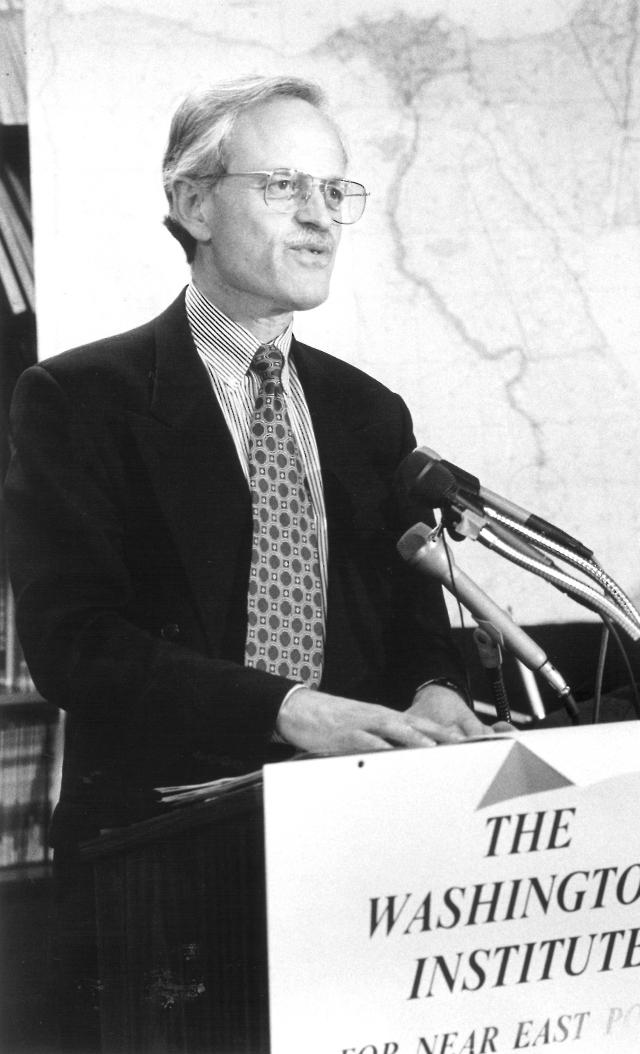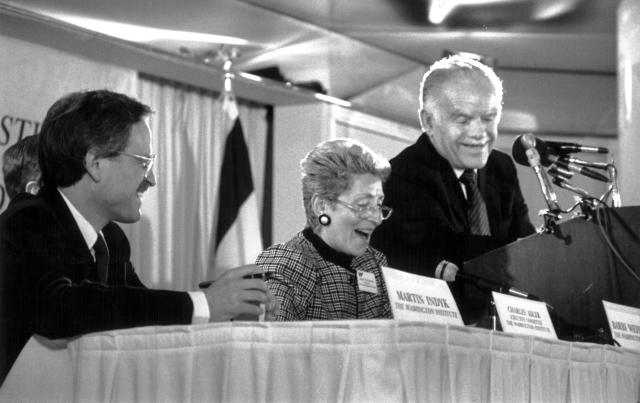Washington Institute Mourns Passing of Founding Executive Director Martin Indyk
WASHINGTON, D.C. (July 25, 2024) - With great sadness, The Washington Institute extends its deepest condolences to the family of Ambassador Martin Indyk, the organization’s founding executive director, who passed away today. He was 73.
“Martin was a true American success story. A native of Australia, he came to Washington to have an impact on the making of American Middle East policy and that he surely did – as pioneering scholar, insightful analyst and remarkably effective policy entrepreneur,” said Dr. Robert Satloff, the Institute’s Segal Executive Director Robert Satloff and Indyk’s successor at the helm of the research organization.
“He was a visionary who not only founded an organization based on the idea that wise public policy is rooted in sound research, he embodied it. His contributions to the growth and development of The Washington Institute -- and to the definition and execution of U.S. Middle East policy, more generally -- are both legendary and immeasurable.”
After receiving his doctorate at the Australian National University, Indyk moved to Washington and soon thereafter joined with the Institute’s founding chairman, Barbi Weinberg of Los Angeles, to establish the organization in 1985. Under their leadership, the Institute quickly developed a reputation for in-depth, practical Middle East research that found eager consumers in the White House, State Department, the Pentagon, intelligence agencies, foreign embassies, newsrooms, and Capitol Hill. From the outset, Indyk emphasized bipartisan approaches to regional problems and outreach that transcended traditional zero-sum thinking about the Arab-Israeli conflict, packaged in highly accessible formats that brought the analytical product of Institute experts directly to readers across the government.
The formula proved a great success – so much so that just eight years after he launched the Institute, President Bill Clinton tapped Indyk to serve as his top Middle East policy advisor as special assistant to the president and senior director for Near East and South Asian affairs at the National Security Council (1993-1995). During the Clinton presidency, Indyk was later named assistant secretary of state for Near Eastern affairs, the first person ever appointed to the position from outside the State Department (1997-2000), and he served two separate tours as U.S. ambassador to Israel (1995 to 1997 and again from 2000 to 2001). He was recalled to government by President Barack Obama to serve as special envoy for Israeli-Palestinian negotiations from July 2013 to June 2014.
“From the Oslo process to the policy of ‘dual containment’ of Saddam’s Iraq and Islamic Iran, Martin left a deep and lasting imprint on the making and shaping of American Middle East policy. In a region known for volatility, whatever progress America made to advance the cause of peace and security was due in no small measure to Martin’s enormous contributions,” said Satloff, the Institute’s Howard P. Berkowitz Chair in U.S. Middle East policy.
After leaving government, Indyk continued to play an important role in public debate over U.S. foreign policy in his positions as founding director of the Center for Middle East Policy at the Brookings Institution, Brookings’ executive vice president and director of its foreign policy program, and then, most recently, as the Lowy Distinguished Fellow in U.S.-Middle East Diplomacy at the Council on Foreign Relations in New York.
In addition, Indyk was the author of the much-acclaimed Master of the Game: Henry Kissinger and the Art of Middle East Diplomacy (A.A. Knopf, 2021) and a personal memoir of his public service, Innocent Abroad: An Intimate Account of American Peace Diplomacy in the Middle East (Simon and Schuster, 2009). He was also co-author of Bending History: Barack Obama’s Foreign Policy with Michael O’Hanlon and Kenneth Lieberthal (Brookings Institution Press, 2012).
Beyond his literary achievements and public policy successes, Indyk’s professional legacy lives on in the scores of scholars, analysts and policymakers he mentored over the years and the encouragement he gave them to apply the principle on which he founded the Washington Institute – to bring scholarship to bear on the making of policy.

